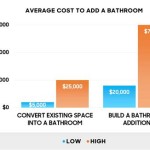```html
Contractors For Kitchen And Bathroom Remodeling: A Comprehensive Guide
Kitchen and bathroom remodeling projects are significant home improvement undertakings that can dramatically enhance a property's value, functionality, and aesthetic appeal. Successfully navigating these projects necessitates careful planning, budgeting, and, crucially, the selection of a competent and reliable contractor. This article provides an in-depth exploration of the factors to consider when choosing contractors for kitchen and bathroom remodeling, offering guidance to homeowners seeking to transform these vital spaces.
The decision to renovate a kitchen or bathroom often stems from a variety of motivations. Outdated fixtures, inadequate storage, or a desire for a more contemporary design are common drivers. Regardless of the underlying reason, the selection of a suitable contractor is paramount to achieving the desired outcome within budget and on schedule. A skilled contractor brings expertise in design, construction, plumbing, electrical work, and project management, ensuring a cohesive and efficient renovation process.
Key Point 1: Assessing Contractor Qualifications and Experience
Before engaging a contractor for kitchen or bathroom remodeling, a thorough assessment of their qualifications and experience is essential. This involves scrutinizing their credentials, reviewing their portfolio, and verifying their insurance and licensing status. A reputable contractor will readily provide this information and be transparent about their capabilities.
Licensing and Insurance:
Ensuring that the contractor possesses the necessary licenses to operate in your jurisdiction is crucial. Licensing requirements vary by state and locality, but they typically involve passing examinations and demonstrating competency in construction practices. Additionally, verifying that the contractor carries adequate liability and workers' compensation insurance is vital. Liability insurance protects the homeowner from financial repercussions in the event of property damage during the renovation, while workers' compensation insurance covers medical expenses and lost wages for workers injured on the job site.Portfolio Review:
A contractor's portfolio provides tangible evidence of their past work and allows homeowners to evaluate the quality and style of their craftsmanship. Examine the portfolio closely, paying attention to the details in the finished projects. Look for projects that are similar in scope and style to your own planned renovation. A reputable contractor should be able to provide references from previous clients, allowing you to gain firsthand insights into their work ethic and customer service.Years of Experience:
While not the sole determinant of competence, a contractor's years of experience in the remodeling industry can be a valuable indicator of their expertise and ability to handle complex projects. Experienced contractors are more likely to have encountered and resolved a wider range of challenges, making them better equipped to navigate unforeseen issues that may arise during the renovation process. However, it's important to note that a newer company run by seasoned professionals can also be a good choice, so don't dismiss them solely based on their company's age.Specialty and Expertise:
Some contractors specialize in specific aspects of kitchen or bathroom remodeling. For example, some may focus primarily on cabinet installation, while others may have expertise in custom tile work or high-end plumbing fixtures. Identifying a contractor whose specialty aligns with the specific needs of your project is crucial for ensuring a successful outcome. Consider whether your project requires specialized skills, such as working with specific materials or adhering to particular design aesthetics.Key Point 2: Obtaining and Evaluating Bids and Proposals
Once a shortlist of qualified contractors has been compiled, the next step is to obtain bids and proposals for the project. It is recommended to obtain at least three bids to allow for a comprehensive comparison of pricing, scope of work, and project timelines. A thorough evaluation of these proposals is essential for making an informed decision.
Detailed Scope of Work:
A comprehensive proposal should include a detailed scope of work that clearly outlines all the tasks and services to be performed. This should include a breakdown of the materials to be used, the specific fixtures to be installed, and the timeline for each phase of the project. Avoid proposals that are vague or lack specificity, as this can lead to misunderstandings and cost overruns down the line. Pay close attention to the inclusions and exclusions, and ensure that all aspects of your desired renovation are clearly addressed in the proposal.Pricing Transparency:
The proposal should provide a clear and transparent breakdown of all costs associated with the project. This should include labor costs, material costs, permit fees, and any other applicable charges. Be wary of proposals that seem unusually low, as this may indicate substandard materials, inexperienced labor, or hidden fees. It's crucial to understand how the contractor handles change orders and whether there are provisions for unforeseen expenses.Timeline and Schedule:
The proposal should include a realistic timeline for the completion of the project, outlining the start date, key milestones, and estimated completion date. Consider the contractor's availability and their ability to commit to the proposed schedule. Delays can be disruptive and costly, so it's important to choose a contractor who is organized and reliable. Inquire about the contractor's project management process and how they will communicate progress updates throughout the renovation.Payment Schedule:
The payment schedule outlined in the proposal should be reasonable and tied to specific milestones in the project. Avoid contractors who demand a large upfront payment before any work has commenced. A typical payment schedule might involve an initial deposit, followed by progress payments as specific phases of the project are completed. Ensure that the payment schedule is clearly defined and agreed upon before signing the contract.Key Point 3: Verifying References and Reviewing Contracts
Before making a final decision, it is crucial to verify the references provided by the contractor and to thoroughly review the contract. This step helps to ensure that the contractor is reputable and that the terms of the agreement are fair and equitable.
Contacting References:
Reach out to the references provided by the contractor and ask them about their experience working with the contractor. Inquire about the quality of their workmanship, their communication skills, their adherence to the budget and schedule, and their overall level of professionalism. Ask specific questions about any challenges they encountered during the project and how the contractor resolved them. A consistent pattern of positive feedback from multiple references is a strong indicator of a reliable and trustworthy contractor.Contract Review:
The contract is a legally binding document that outlines the rights and responsibilities of both the homeowner and the contractor. It is essential to review the contract carefully before signing it, and ideally, to have it reviewed by an attorney or legal professional. Ensure that the contract includes all the details that were agreed upon during the bidding process, including the scope of work, the pricing, the timeline, the payment schedule, and any warranties or guarantees. Pay close attention to clauses regarding dispute resolution, change orders, and termination of the contract.Warranty and Guarantee:
Understand the warranties and guarantees offered by the contractor on their workmanship and the materials used in the renovation. A reputable contractor will stand behind their work and offer a reasonable warranty period. Clarify the terms of the warranty, including what is covered and the process for filing a claim. Material warranties are typically provided by the manufacturer and may vary depending on the specific products used.Communication and Project Management:
Discuss the contractor's communication and project management approach. A successful renovation requires clear and consistent communication between the homeowner and the contractor. Understand how the contractor will provide updates on the project's progress, how they will handle questions or concerns, and how they will manage any unforeseen issues that may arise. A well-organized contractor will have a system in place for tracking expenses, managing subcontractors, and ensuring that the project stays on schedule.Selecting the right contractor for kitchen and bathroom remodeling is a critical decision that can significantly impact the success of the project. By carefully assessing qualifications and experience, obtaining and evaluating bids and proposals, and verifying references and reviewing contracts, homeowners can increase their chances of achieving a beautiful, functional, and long-lasting renovation. A well-informed decision will pave the way for a smooth and rewarding remodeling experience. Furthermore, open communication and a collaborative approach with the chosen contractor are crucial throughout the entire project lifecycle.
```
General Contractors Kitchen And Bathroom Remodeling Design In Duarte Ca Other By User Houzz

Find Kitchen And Bathroom Remodeling Contractors Me

15 Reasons Bathroom Remodeling Contractors Fail Innovate Builders Blog Building Dealers

Bathroom Remodeling Services

A Kitchen Or Bathroom Remodel Adds Value To Your Gainesville Home Remodeling Contractors

The 5 Best Bathroom Remodeling Contractors In Aiken South Ina Home Builder Digest

Kitchen Bathroom Design Remodel Contractors Los Angeles Ca Transitional Other By Torres Home Remodeling Houzz

Locate The Best Local Kitchen Remodeling Contractors In Hawthorne And Pt Pleasent Custom Bath Signature Kitchens

Santa Monica Kitchen And Bathroom Remodel Joel Co

The Best Bathroom Remodeling Contractors In Atlanta Georgia Home Builder Digest
See Also







